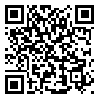

BibTeX | RIS | EndNote | Medlars | ProCite | Reference Manager | RefWorks
Send citation to:
URL: http://hcjournal.arums.ac.ir/article-1-551-en.html
Background & objectives: The presence of patient’s family in critical care units in Iran is banned and the patient is alone in these wards. One reason for this is thought to increase patient’s anxiety is a result of his/her family's presence in bedside. This study aimed to determine the impact of family visits on the level of anxiety in patients with angina pectoris hospitalized in cardiac intensive care unit, Iran
Methods: This study was an after and before quasi-experimental research with a control group. The study population included all patients with angina pectoris admitted to the CCU of martyr Rajai Hospital in Gachsaran and had no history of psychiatric disorders or psychotropic drugs abuse. A total of 60 patients were selected by convenience sampling method from the study population. Scheduled visits twice a day, each time 1 hour used in 30 patients eligible for the study and their anxiety before and at the end of the intervention was measured by the Spielberger Questionnaire. In the control group, routine prohibited visits were followed and the level of patients’ anxiety was measured 12 and 72 hours after admission. Finally, the level of anxiety in two intervention and control groups was compared using independent and paired t-test.
Results: The results showed that 3 days after hospitalization anxiety was reduced in both groups but this reduction is statistically significant in the intervention group (p=0.004).
Conclusion: Scheduled visit method is a good way to reduce anxiety in patients with Angina pectoris hospitalized in cardiac intensive care unit, so it may be replaced for banned visiting in intensive care units.
| Rights and permissions | |
 |
This work is licensed under a Creative Commons Attribution-NonCommercial 4.0 International License. |


